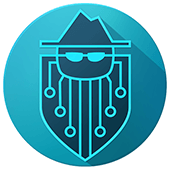Internet Security Dictionary
The internet security world is full of terms that can sound like an alien language, mainly because a lot of it was invented by computer programmers who had to create new languages — coding didn’t exist before coders, after all — and unless you were part of that community, there’s no way you’d ever know their vocabulary.
But in recent years computers and smartphones have become much more integral all of our lives, playing a part in everything from how we meet our romantic partners to how we manage our money to how we communicate with our loved ones. And as more and more of our personal lives go online, an increased number of us are becoming aware of — and concerned about — internet security.
So what about that internet security vocabulary? Anyone trying to educate themselves about online safety will pretty much immediately find themselves tripping over terms they’ve never encountered before, which can make the whole process really difficult. So we decided to put together a quick list of some of the most common — and most confusing — ones you might encounter. This list isn’t exhaustive, of course, (check out this glossary from SANS for even more terms you’ve never heard of) but rather a quick cheatsheet as you start to navigate the world of internet security.
Bit domains
A “bit” is the smallest unit of information storage for computers. Bit domains are top-level domains that exist outside of the Domain Name System (DNS). They’re used for crytocurrencies like Bitcoin and are popular with webmasters and visitors who want censorship-resistant websites.
Domain Name Servers DNS
Domain Name Servers (DNS) are most commonly described as “the internet’s phone book.” They are directories of domain names and their corresponding IP addresses. When you want to connect to a specific website, you type in a domain name — but your computer doesn’t speak English. In order to get the name of the site in a language it can understand, your computer reaches out to a DNS. The DNS translates the domain name into an IP address, which your computer understands.
Firewall
While a physical firewall stops the spread of actual fire, an internet firewall shields your computer from hackers, viruses, and (ideally) anything else that’s trying to gain unauthorized access.
Hackers
While hacker is used in popular media to mean someone who’s trying to break into your computer in order to do you harm, a hacker originally just meant someone who writes computer code. Plenty of hackers hack for good, such as finding and reporting vulnerabilities on some of the world's most used systems and websites. Without white-hat hackers, the digital world would be a much more dangerous place.
Internet Protocol (IP)
An Internet Protocol (IP) address is like your computer’s address, for the internet. In order for you to connect with the internet — and other devices that are online — your computer is assigned an IP address. That address contains four, three-digit numbers, separate by full stop (.). When you type a domain name into your browser, your computer reaches out to a DNS, which translates it into a numerical IP address that your computer can read.
Malware
Malware is short for “malicious software,” and it’s exactly what it sounds like: software that’s designed to infect your device and do some kind of damage. That damage can range from messing up your device to spying on your keystrokes to stealing your banking information.
Phishing
Phishing is when a criminal pretends to be a trustworthy person or website in order to gain sensitive information, like your banking PIN or your passwords. An obvious example is an email from a “Nigerian prince” asking to do a funds transfer in hopes that you’ll give up your banking information.
Proxy
A proxy or proxy server is an intermediary between your device and the internet. Instead of connecting directly to the internet, your requests are rerouted through the proxy server. People use proxies to conceal their IP address, to get around filters or blocks, and to gain some anonymity when they’re online.
Public Wi-Fi
Public Wi-Fi is an insecure wireless internet network that can be access without a password. Unlike on Wi-Fi networks that are password-protected, information sent over public Wi-Fi can be easily intercepted by hackers and thieves.
VPN
VPN stands for Virtual Private Network. It’s a network of devices connected to each other and a remote server via the internet. When you connect with a VPN, your device exchanges “trusted keys” with the network, which creates a secure connect. VPNs allow for private browsing, as well as protection against thieves who are trying to steal your data or governments who are trying to spy on you.
Share this postInstall Tenta Browser Free!
Start protecting your online privacy today with Tenta Browser.



